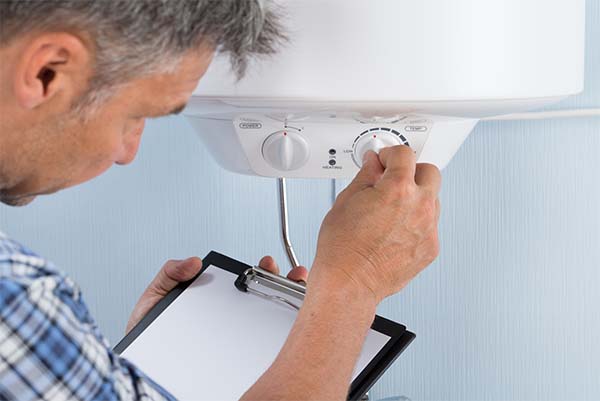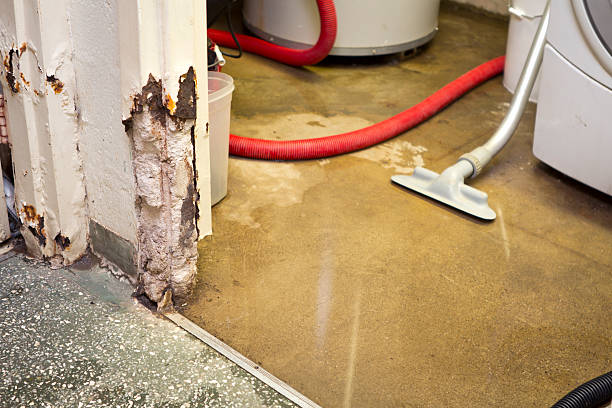Crucial Procedures for House Owners Dealing with Broken Heating Units
Crucial Procedures for House Owners Dealing with Broken Heating Units
Blog Article
Are you trying to locate info around How to Avoid a Broken Hot Water Heater?

Whether it is located in the basement or a different area, busted hot water heater can create stress. A common device holds 80 gallons, so an over night leakage will certainly lead to a flooding. This leads to significant residential property damages with drenched wall surfaces and floors. Having no hot water supply is additionally problematic. If you are managing these concerns, remember of the following:
Call the Plumber
After doing the very first two safety and security steps, you must call your plumber to come right away to deal with a burst water heater. There are normally indications that your aging water heating system has debris accumulation in the inside.
Don't await major flooding to call the plumber. By then, you will certainly need to invest even more to restore your residential or commercial property. Rather, as quickly as you detect these signs, have a specialist concerned evaluate your hot water heater storage tank. Commonly, water heaters have a lifespan of concerning 8 to 12 years. With normal evaluation and also upkeep, you can prolong its life.
Cut Off the Cold Water Supply
Cut off the containers faucet water supply from the resource. This goes from your major water line into the container. When your container remains in good condition, the cold water stops filling out when the storage tank is full. However because it is leaking, the water will continue to move. Shut the valve discovered at the top of the heating unit. Rotate this clockwise to shut it off. You must turn off that major water supply line outside your property if you can not discover it or reach it.
Shut Down Source Of Power
Before calling the plumber, shut down a gas water heater by transforming the temperature dial. This is usually located at the top of the thermostat. If you have a model that works on electrical power, turn off the breaker. This will certainly stop electrocution, particularly if there is a leak as water is a conductor. Typically, the heating element shuts off when the water hits a certain temperature level. But with a damaged tank, it might malfunction. Cutting it off guarantees you remain safe.
Tidy up Home
After calling the plumber, document damages by making note as well as photos so you can assert your homeowner's insurance policy. From there, begin the prompt clean-up. Take out any important valuables to stop additional saturating. Remove any standing water to protect against mold and mildew growth. Utilize that to drain the water if you have a submersible water pump. Or else, the standard pail approach will also function. Try to mop out every little thing, including wall surfaces and also baseboards. If you have an electrical fan as well as dehumidifier, keep them running to keep air circulating. This will certainly help deter mold and mildew growth.
Bear in mind, if you see any type of issues with your water heater, call the pros right away. You can not take this trouble gently due to the fact that a damaged thermostat can elevate water temp to a hazardously high degree, leading to unexpected burns.
After doing the initial two safety and security actions, you should call your plumber to come right away to fix a burst water heater. Rather, as quickly as you find these indicators, have an expert come to evaluate your water heating unit container. Before calling the plumber, shut off a gas water heating unit by transforming the temperature level dial. If you have a submersible water pump, utilize that to drain pipes the water. Remember, if you notice any type of problems with your water heating unit, call the pros right away.
When You Should Turn off Your Water Heater
When the main water supply is shut off
There are many circumstances in which the main water supply is turned off. When this happens, many homeowners wonder if it’s safe to keep the water heater on of it should be shut down too.
In most cases, it may not be necessary to turn off the water heater, but it also won’t hurt, either. However, there are two reasons when you should turn off the unit to prevent too much pressure or heat from building up inside the tank:
When there’s a leak
If your water heater springs a leak due for a variety of reasons, including age or a valve malfunction, you should always turn off the unit and shut off the water supply until the issue is resolved.
https://www.libertyplumbingheatingandair.com/blog/when-you-should-turn-off-your-water-heater/

I ran across that entry about Water Heater Repair when doing a lookup on the search engines. Loved our piece? Please share it. Help someone else check it out. I enjoy reading our article about Water Heater Repair.
Ensure plumbing integrity; reach out. Report this page